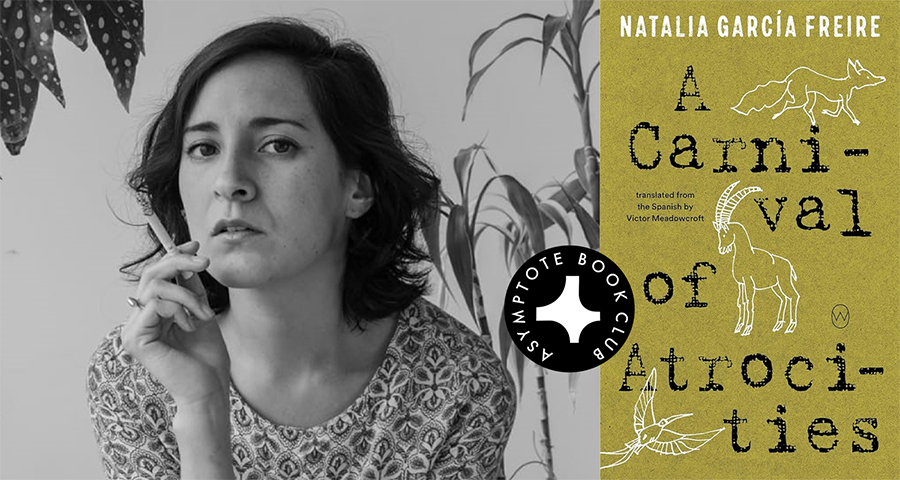One finds a symphony of lyricism, naturalism, and generational phantasms in A Carnival of Atrocities, the latest novel from Ecuadorian writer Natalia García Freire and our Book Club selection for the month of May. Through a succession of perspectives that enmesh and build, a town and its chaotic history comes into view, and with it an illumination of postcolonial fractures, ecological conflicts, and tensions between the human and the divine. In this following interview, the author and her translator, Victor Meadowcroft, speak to us about the creation and the English rhythms of this complex narrative, as well as its place in the great, varied canon of Latin American writing.
The Asymptote Book Club aspires to bring the best in translated fiction every month to readers around the world. You can sign up to receive next month’s selection on our website for as little as USD20 per book; once you’re a member, join our Facebook group for exclusive book club discussions and receive invitations to our members-only Zoom interviews with the author or the translator of each title.
René Esaú Sánchez (RES): I would like to start by asking both of you about the title of the novel, A Carnival of Atrocities. The original title in Spanish is Trajiste contigo el viento, which could be translated like You Brought The Wind With You, highlighting the mythical connection between Mildred—the character at the center of the novel—and nature.
Victor Meadowcroft (VM): That was actually a publisher’s decision. My original working title was the literal translation of You brought the wind with you. We also changed the title of Natalia’s debut novel, This World Does Not Belong To Us (originally, Nuestra piel muerta), so that could possibly be why they decided to do the same with the second one. Or maybe they thought that the title didn’t sound as nice as it does in Spanish, because they had asked me to look through the book to see if I could find some lines that might work well. I came up with a list of ten possible titles and the publisher loved A Carnival of Atrocities; at one point she said she wanted to call all her books A Carnival of Atrocities from then on. And Natalia was very happy to go with that title, so it was a publisher led decision, rather than a translator led one.
RES: What are your opinions on the title, Natalia?


